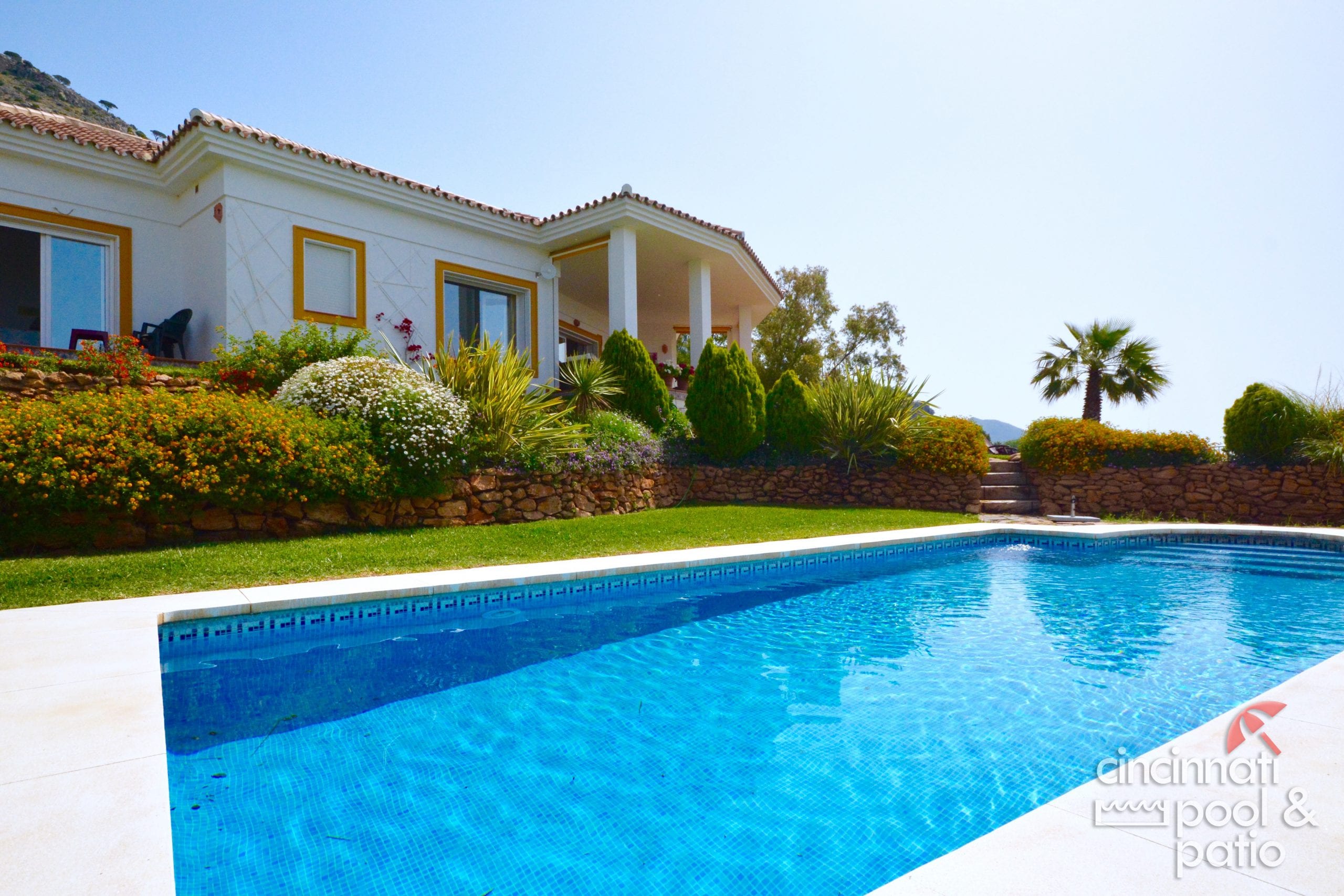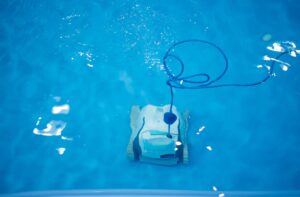Saltwater vs Chlorine
Getting a pool always comes with the big question, saltwater vs chlorine?
Today we’ll be discussing the pros and cons of specifically using saltwater in your pools versus only chlorine.
Saltwater Vs Chlorine
Saltwater systems make chlorine, the exact same chlorine that is released from pool chlorine products. In a saltwater pool, when H2O + NaOCl are run through the salt cell, the electric charge breaks apart molecules to create chlorine (Cl) and a few other byproducts, which are generally reabsorbed. The chlorine that is instantly created, hypochlorous acid, is the same exact chlorine that is released from chlorine tablets, liquid chlorine, or granular chlorine.
Saltwater Pools Do Have Benefits
- You can’t taste the salt, but it can make the water feel softer
- Less storage and handling of hazardous chlorine products
- Breakpoint chlorination inside the cell reduces chloramines constantly
- Easily raise or lower chlorine levels, and view status on a digital display
Saltwater Pools Are Not Maintenance Free Pools
- You still have to monitor the system, and test for salt, chlorine and stabilizer levels
- You have to maintain good water balance; saltwater pool pH and Alkalinity rises rapidly
- Salt cells need cleaning to remove scale, although some systems do it automatically
- The cells about 5 yrs; salt system parts like boards, sensors, and switches may last longer
You May Still Need To Use Chlorine Products
- To raise the chlorine level very fast for shock treatments
- Maintaining chlorine level during pump, filter or salt system equipment problems
- To clear the water during opening or closing the pool, or for treating various water problems
Saltwater can attack Soft & Shiny Surfaces
- Galvanic corrosion can oxidize chrome surfaces in the pool, although sacrificial anodes can be used
- Salt residue can slowly corrode soft coping stones or stone decks, although sealers can be used
Have any more questions about saltwater pools? Contact us here!








